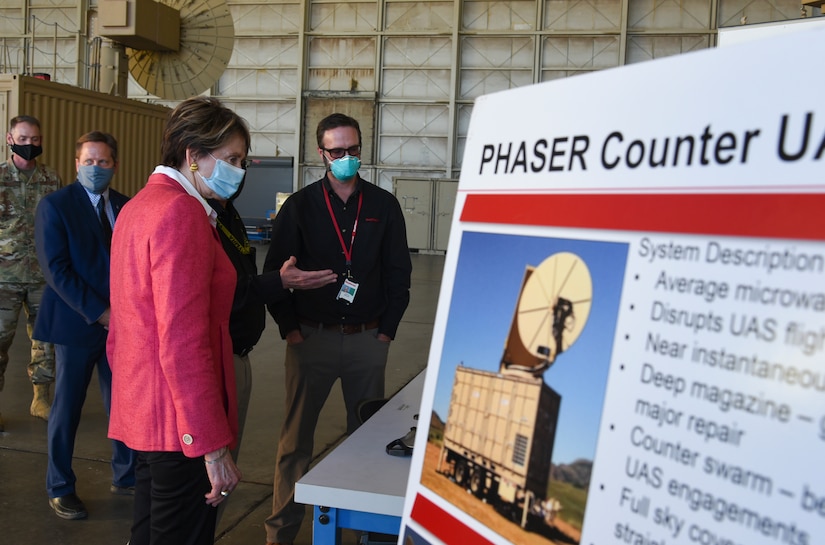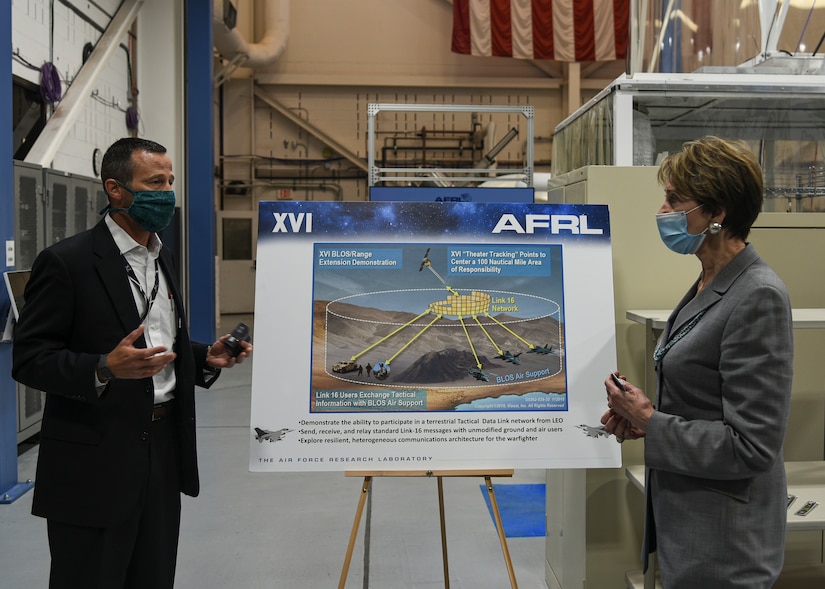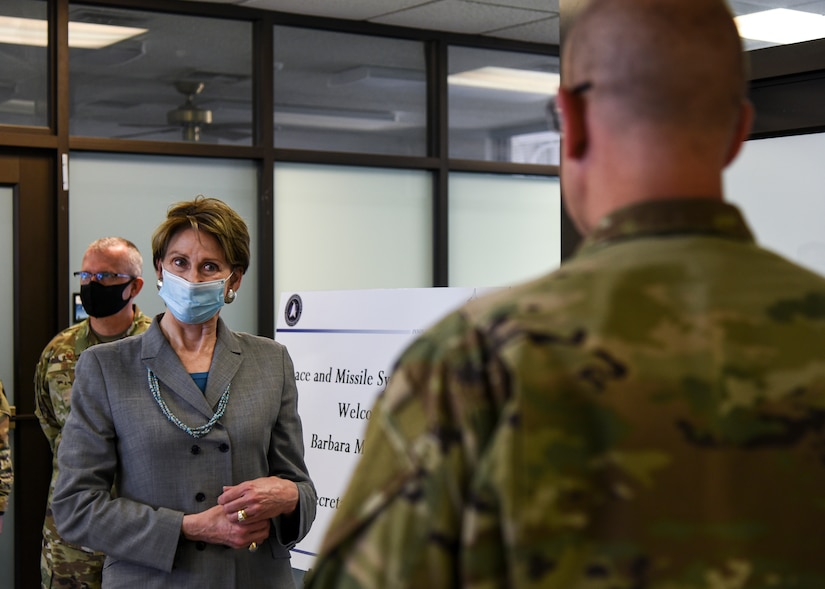
The secretary visited the base May 20-21.
"Team Kirtland's myriad of missions don't stop because of COVID-19." Barrett said. "Today's visit was an opportunity to personally thank and observe how service members and civilians have adapted and continue to modernize the Air and Space Forces."
Barrett began the visit at the Air Force Research Laboratory's Directed Energy and Space Vehicles Directorates, where she was briefed on several programs critical to the nation’s defense.

Dr. Kelly Hammett, the director , introduced Barrett to a variety of high-power microwave and high-energy laser systems in development. Hammett showcased the Raytheon PHASER and AFRL THOR high-power microwave systems for countering small unmanned aerial systems, as well as the CHIMERA high-power microwave system being tested for additional base defense capabilities.
"Combatant commanders are very interested in these transportable systems that can nonkinetically defeat multiple air base threats, while providing a deep magazine and low cost per shot," Hammett said.
Barrett received briefings on the space vehicle's small-satellite portfolio and detailed presentations on the directorate’s spacecraft now in orbit.
"The Air Force Research Lab has an amazing pipeline of space science and technology innovations focused on increasing the resiliency of our nation's space capabilities so that we deter conflict in space," said Air Force Col. Eric Felt, the lab's director.

The base visit continued to the Air Force Nuclear Weapons Center, where Barrett was brought up to date on critical programs and how they line up with her priorities as the Air Force secretary. The planned transfer of AFRL missions to the Space Force continues, despite the COVID-19 pandemic.
Barrett was briefed on the center's plans for returning to full mission capability during the COVID-19 pandemic, said Air Force Maj. Gen. Shaun Morris, the commander of AFNWC and the Air Force program executive officer for strategic systems. "Given the absolutely critical nature of our role in providing nuclear capabilities to the warfighter, we are committed to maintaining full support despite COVID-19. To date, we've kept all key efforts on track and in line with her nuclear deterrence priorities."

Barrett also visited the Space Rapid Capabilities Office to familiarize herself with its mission and transition to the Space Force.
"As one of the key acquisition organizations of the U.S. Space Force, the Space RCO is laser focused on meeting our mission to develop and deliver critical space capabilities at the speed of relevance," said Mike Roberts, the RCO director. "The Space RCO is honored to have the opportunity for our workforce to meet [Barrett], given the secretary's leadership has been key in empowering our ability to meet our mission."
Barrett visited the Space and Missile Systems Center Innovation and Prototyping Directorate to better understand how the center accelerates the pivot to the new space architecture.
"We were particularly excited to showcase the partnerships we share with other space organizations here at Kirtland Air Force Base and across the [Defense Department]," said Air Force Col. Timothy Sejba, the director of SMC innovation and prototyping.

Throughout the visit, Barrett emphasized the importance of the multiple national security mission sets on Kirtland and not only how critical their capabilities are, but also how vital the workforce is for mission readiness and success. Social distancing, face coverings and "elbow" greetings were routine during the visit.
"It was an amazing opportunity for our airmen to spend time with Secretary Barrett," said Air Force Col. David S. Miller, the commander of the 377th Air Base Wing. "Her trip to Kirtland certainly underscores the importance of the work by all of the men and women on Team Kirtland, and the installation's contributions to national security."








No comments:
Post a Comment